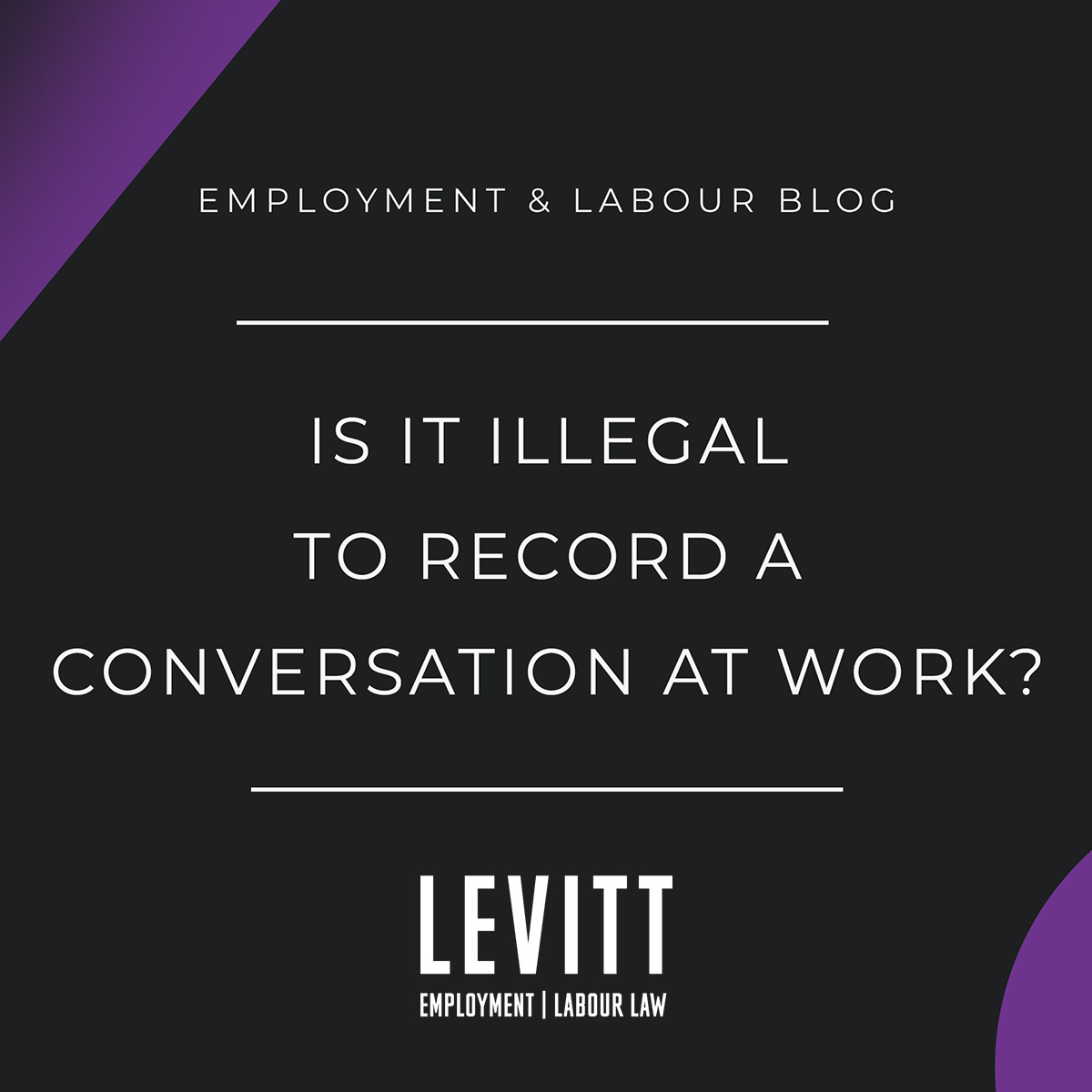Can I Record a Conversation with My Boss or Coworker at Work?
Yes. The Canadian Criminal Code allows individuals to record private conversations as long as they are a party involved in the conversation, or one of the parties involved in the conversation consents. However, this does mean that leaving a recording device to record conversations while you are away (and the parties are unknowing and unconsenting) is illegal. For example, if you suspect your coworker is spreading rumors about you or undercutting you to your boss, you cannot leave a recording device in their office to ‘catch them in the act’, even if the conduct is inappropriate and damaging to you.
Some Things to Consider Before Recording Conversations
- Is the content of the conversation confidential?
Sharing or even recording conversations that include confidential information such as trade secrets or confidential documents can at a minimum, damage your reputation and workplace relationships if shared and, at worst, be cause for dismissal. Employer can enact policies in the workplace that prohibit recording conversations and identify that a violation can lead to discipline. Employees also have certain confidentiality and privacy obligations to their employers and breaching those obligations can allow an employer to fire an employee with cause, meaning the employee would be fired without notice or termination pay.
- Are you capturing anything that would be a breach of privacy?
If you are taking a video recording of a conversation that includes an intimate moment or another party in a state of undress, your recording may be considered a breach of privacy or an “intrusion upon seclusion”. The person in the compromising situation does not need to be another party to the conversation for this issue to apply. For example, if an employee is a nurse and records a conversation with a colleague while a patient is dressing or using the facilities, the recording would be considered a violation of the privacy of the patient. A secret recording that captures personal information or private acts could form liability against the recorder for breach of privacy.
Therefore, whether it is wise to record a workplace conversation is very fact-dependent and every situation will have a different answer.
Can What I Record Be Used in Court?
There may be circumstances in which recording can be justified and even beneficial, for example, to preserve a record of mistreatment or abuse in the workplace when there is no other cogent evidence. But there are risks in doing so and employees should proceed with caution.
If you are considering whether to record a workplace conversation or want to know whether the recording you do have can be use against your employer in litigation, a consult with an employment lawyer can provide insight into your situation.
Please note that this article is only to be used as general information and it does not constitute legal advice. We encourage employers and employees to contact Levitt LLP directly to better understand ‘without cause’ issues and seek legal advice to their questions.

